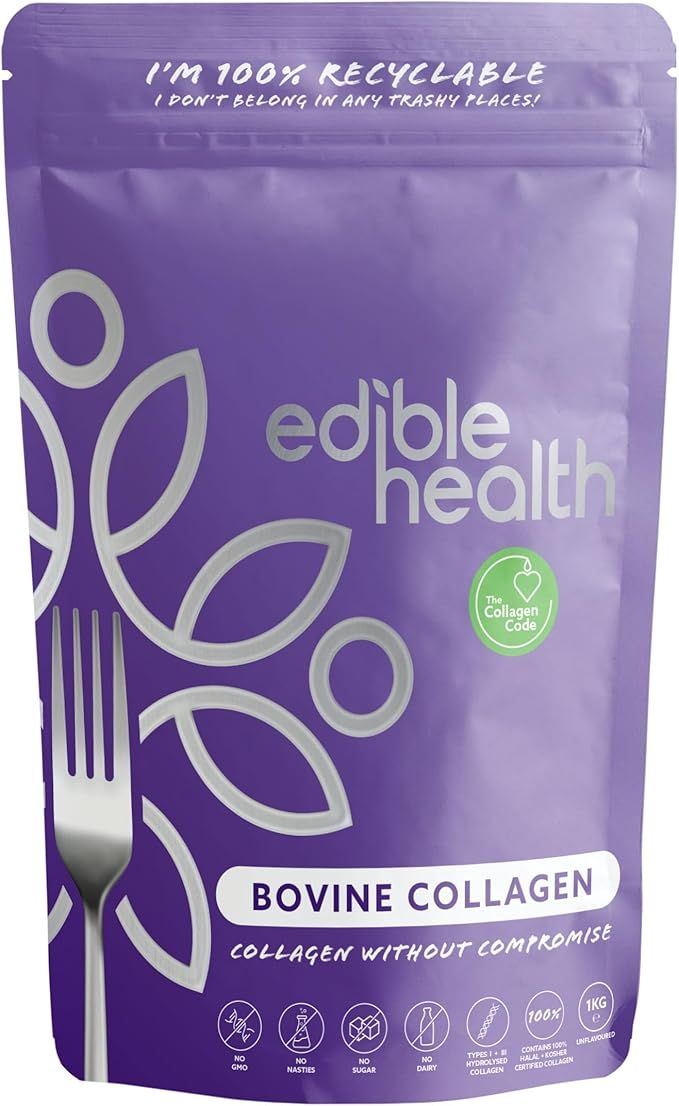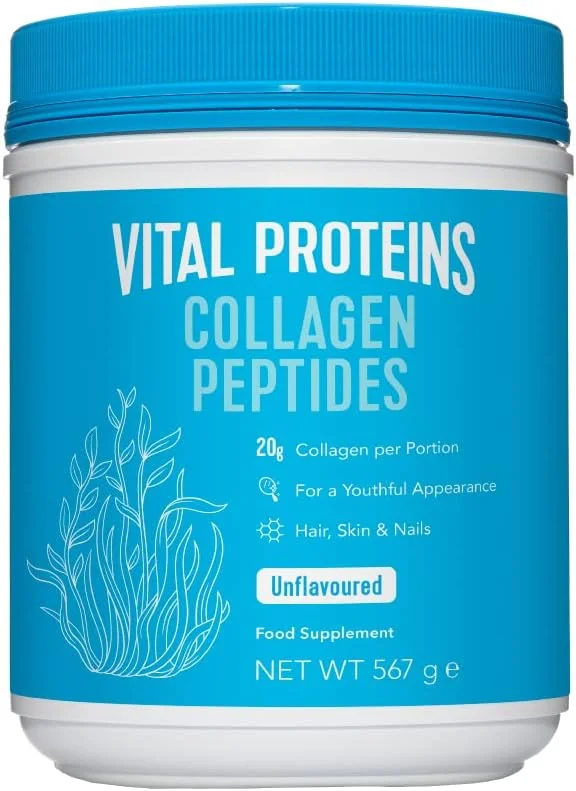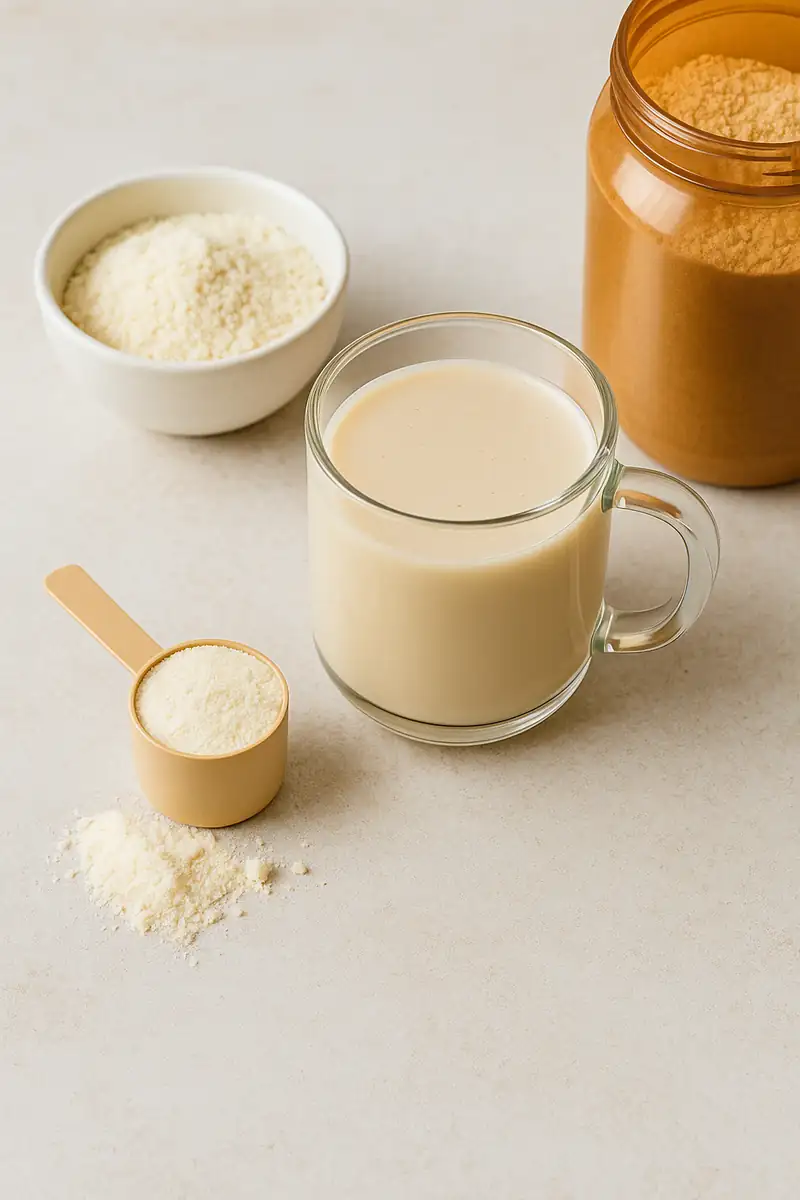What is collagen?
Collagen is the most abundant protein in the human body. It acts as a structural component in skin, tendons, ligaments and cartilage. Most collagen supplements are derived from bovine or marine sources and are hydrolysed to make them easier to dissolve. Unlike whey or soy, collagen is not considered a complete protein because it is low in several essential amino acids.
You might see collagen advertised for joint health or skin elasticity. While it is a key component of these tissues, the body requires a variety of amino acids from a balanced diet to build and repair them. Supplementing with collagen may support your intake of specific amino acids like glycine and proline, but it should not replace complete proteins in your diet.
What studies suggest
Research on collagen supplementation is still developing. Some studies suggest that collagen peptides may support joint comfort and skin hydration, particularly when combined with vitamin C and a balanced diet. Evidence for its effects on muscle recovery is limited compared to whey or casein. As with any supplement, individual responses vary and more studies are needed.
Because collagen lacks several essential amino acids, pairing it with complete proteins ensures you meet your overall amino acid requirements. For example, you could stir collagen powder into Greek yoghurt or a smoothie that already contains whey protein.
FAQs
Is collagen a complete protein? No. Collagen is low in essential amino acids such as tryptophan and is therefore not complete. It should complement, not replace, complete protein sources.
Can collagen help my recovery? Collagen may support joint health and skin hydration, but there is limited evidence that it significantly improves muscle recovery compared to complete proteins. Pairing collagen with complete proteins covers all bases.
Should I replace whey with collagen? Collagen serves a different purpose. Whey and other complete proteins provide all essential amino acids for muscle maintenance. Collagen can be an add‑on if you wish to target connective tissues or skin but should not be your primary protein source.
Conclusion
Collagen supplements have gained popularity, yet they are not a direct substitute for complete protein powders. They may support specific tissues when used alongside a balanced diet, but they lack essential amino acids. Use collagen as an optional add‑on and focus on whole foods and complete proteins first. For a broader look at supplements, read our Supplements Guide.
Featured Collagen Proteins

Bovine Collagen

Hydrolyzed Collagen Peptides
Discover Collagen & Protein
Explore complete proteins and collagen options to support your joints and recovery.
Joint Support SupplementsExplore Protein Powders
